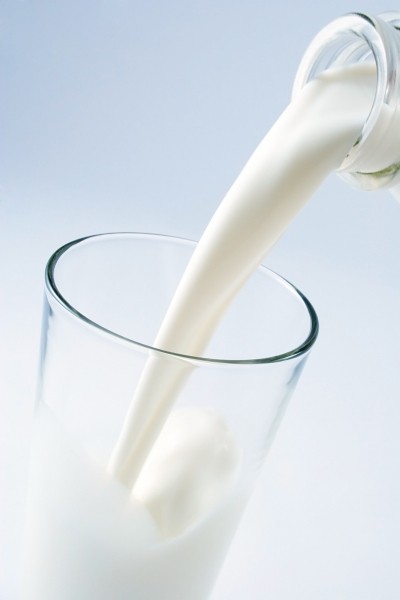More calcium and vitamin D may aid weight management
Average calcium intakes of 580 milligrams per day and blood levels of vitamin D of 30.2 nanograms per milliliter were associated with 5.3 kg weight loss over the two years of intervention, according to findings published in the American Journal of Clinical Nutrition.
Lower calcium intakes of just 156 milligrams and blood levels of vitamin D of 14.5 nanograms per milliliter were also associated with improvements in body weight (loss of 3.3 kilograms over two years).
“Our study suggests that both higher dairy calcium intake and increased serum vitamin D are related to greater diet-induced weight loss,” wrote the researchers, led by Danit Shahar from Ben-Gurion University of the Negev in Israel.
Controversy and debate
An ongoing area of debate is the role of dairy in weight management. A relationship between dairy intake and weight reduction has been recorded in numerous studies, and dairy industries in Europe and the US have been promoting milk-based products for consumers who want to slim for some time. The subject, however, remains controversial.
There are even splits within the dairy camp, with some arguing that calcium and vitamin D are the active nutrients behind the effects. One of the lead researchers in this are, Dr Michael Zemel from the University of Tennessee, has previously said that dairy can help reduce body fat and that calcium only accounts for about 40 per cent of the effect.
Data from the two-year Dietary Intervention Randomized Controlled Trial (DIRECT) now indicates that for every incremental increase in calcium from dairy sources was associated with an increase in “the likelihood of weight loss of greater than 4.5 kg”, while similar associations were observed for increasing vitamin D blood levels.
Shahar and her co-workers analyzed data from 322 people with an average age of 52 and an average BMI of 31 kg/m2. One hundred and twenty-six of these people were followed to a further six months to track vitamin D levels.
Data strengthens calcium’s role
Only recently, we reported on a secondary analysis of data from a double-blind, placebo-controlled, randomized trial, which found that 1,400 or 1,500 milligrams of calcium per day, with or without vitamin D3, was associated with lower trunk fat gain and higher lean trunk mass (Nutrition & Metabolism, 2010, 7:62).
An earlier study from Canada indicated that the potential benefits of calcium supplements may be limited to women with low habitual intakes of the mineral (British Journal of Nutrition, 2009, Vol. 101, pp. 659-663).
Regarding the potential mechanism, the Canadian study proposed that calcium may affect appetite. Laval University researcher Angelo Tremblay stated: "Our hypothesis is that the brain can detect the lack of calcium and seeks to compensate by spurring food intake, which obviously works against the goals of any weight loss program. Sufficient calcium intake seems to stifle the desire to eat more."
On the other hand, a meta-analysis published last year in Obesity Reviews (Vol. 10, pp. 475-486) indicated that calcium may aid weight management by increased fat excretion in the feces.
Weight Management 2010
State of the art weight management science and the latest trends will take center stage at Weight Management 2010 – the one-day virtual LIVE event for weight management for the food, beverage and dietary supplements industries.
For more information and to register, please click here.
Source: American Journal of Clinical Nutrition
Published online ahead of print, doi: 10.3945/ajcn.2010.29355
“Dairy calcium intake, serum vitamin D, and successful weight loss”
Authors: D.R. Shahar, D. Schwarzfuchs, D. Fraser, H. Vardi, J. Thiery, G.M. Fiedler, M. Bluher, M. Stumvoll, M.J. Stampfer, I. Shai















